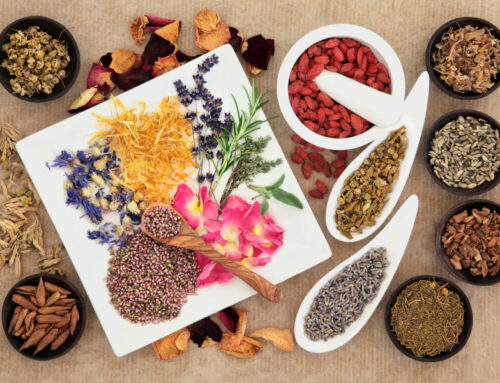By: Dr. Keara Taylor, ND
Cardiovascular disease is the leading cause of morbidity and mortality among older post-
menopausal women. As women, the risk of cardiovascular disease is 2-3 times higher after
menopause (1). Statically, men are at a higher risk, however, as women age, their level of risk
approaches that of men, and the lifetime risk for women may actually be higher because we live
longer (2). The risk of cardiovascular disease in women should not be underestimated, and
because there appears to be a link between hormones and cardiovascular disease – we see
rates increase significantly after menopause – we can and should be proactive in managing that
risk, especially as we age.
The average age of menopause in women is approximately 51, and is often accompanied by
the immediate symptoms of hot flashes and night sweats. However, longer-term issues can also
arise, such as cardiovascular disease, osteoporosis and cognitive impairment.
The Study of Women’s Health Across the Nation (SWAN) looked at the correlation between a
menopausal woman’s experience of vasomotor symptoms like hot flashes with cardiovascular
risk factors. It found that vascular aging, endothelial dysfunction and large artery stiffening
seemed to increase in women during the menopausal transition and that women with hot
flushes had higher rates of subclinical cardiovascular disease (1).
As women enter menopause, treating symptoms with bioidentical hormone replacement therapy
(BHRT) may be a good option, and should be discussed with a health care practitioner.
While the use of BHRT in menopause is beyond the scope of this article, here are some dietary
and lifestyle practices that you can implement right now that have been shown in the literature
to reduce the risk of cardiovascular events:
Adopt a Mediterranean Diet – Many studies have shown the beneficial impact of the
Mediterranean diet on cardiovascular disease. The foundation of this diet includes high
amounts of vegetables, fruits, legumes, fish, grains, and olive oil, low amounts of meat and
moderate amounts of wine (3).
Engage in Exercise – We know that exercise provides many benefits to the body, including
cardiovascular health. As an example, one study looked at postmenopausal women with high
blood pressure and found that 12 weeks of a combined program of resistance training and
aerobic exercise improved blood pressure, body composition, and other cardiovascular markers
(4).
Eat Flax seeds – I consider flax seeds a superfood for women! They are full of fiber, good fats,
and lignans, which act as phytoestrogens. Flax seeds have been found to have a beneficial
effect on blood pressure and lipids so they are great for the cardiovascular system (5). They
have also been studied in menopausal women and 30g a day were shown to improve
vasomotor symptoms like hot flashes (6).
Consume Soy – Soy has been studied quite a bit in menopausal women as soy isoflavones act
as selective estrogen receptor modulators. In one study, after 6 months of 15g soy protein
daily, there was a 27% reduction in 10 year coronary heart disease risk, 37% reduction in
myocardial infarction risk, 24% decrease in cardiovascular disease and 42% reduction in
cardiovascular disease risk (7).
I hope that this information empowers you to see that there are dietary and lifestyle practices
that you can implement today to help reduce your risk of cardiovascular disease as you age.
References
1. Biglia N, Cagnacci A, Gambacciani M, Lello S, Maffei S, Nappi RE. Vasomotor symptoms in
menopause: a biomarker of cardiovascular disease risk and other chronic diseases?
2017;20(4):306–12.
2. Cardiovascular Disease and the Female Disadvantage. – PubMed – NCBI [Internet]. [cited 2020
Feb 12]. Available from: https://www.ncbi.nlm.nih.gov/pubmed/30939754
3. Shen J, Wilmot KA, Ghasemzadeh N, Molloy DL, Burkman G, Mekonnen G, et al.
Mediterranean Dietary Patterns and Cardiovascular Health. Annu Rev Nutr. 2015;35:425–49.
4. Son W-M, Sung K-D, Cho J-M, Park S-Y. Combined exercise reduces arterial stiffness, blood
pressure, and blood markers for cardiovascular risk in postmenopausal women with
hypertension. Menopause N Y N. 2017;24(3):262–8.
5. Parikh M, Maddaford TG, Austria JA, Aliani M, Netticadan T, Pierce GN. Dietary Flaxseed as a
Strategy for Improving Human Health. Nutrients [Internet]. 2019 May 25 [cited 2020 Feb
7];11(5). Available from: https://www.ncbi.nlm.nih.gov/pmc/articles/PMC6567199/
6. Colli MC, Bracht A, Soares AA, de Oliveira AL, Bôer CG, de Souza CGM, et al. Evaluation of
the efficacy of flaxseed meal and flaxseed extract in reducing menopausal symptoms. J Med
Food. 2012 Sep;15(9):840–5.
7. Sathyapalan T, Aye M, Rigby AS, Thatcher NJ, Dargham SR, Kilpatrick ES, et al. Soy
isoflavones improve cardiovascular disease risk markers in women during the early menopause.
Nutr Metab Cardiovasc Dis NMCD. 2018;28(7):691–7.






